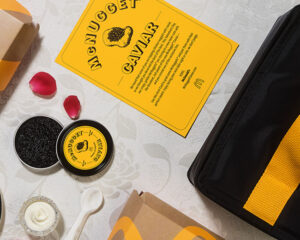
Hey pays, she pays…money and dating can get very complicated sometimes. Via Shutterstock.
Whatever your term for dating, money is going to be part of it. And for better or for worse, money needs to be addressed before the relationship gets serious. Before you think about happily ever after, how do you determine someone’s money personality – and if it’s compatible with yours?
With money and dating, what red flags do you look for?
What financial habits are deal breakers for you?
- Lifestyle observations: How does your date interact with money? Do they enjoy doing frugal activities, or must every date cost money? Is she always insisting that dates have to be “really nice” and simple things like picnics and handmade gifts make you “mean and cheap”? Does he say, “Money is no object!” a little too often?
- A dollar (or more) short: Is your date always coming up a few dollars shy and asking to borrow money? What about phone calls that sound like bill collectors? Have you been to their apartment and found their power has been shut off?
- Who pays: These days, money and dating means a fair and equitable split. If your date always slides the check your way, or manages to be in the restroom when it arrives, there might be a problem.
- Money as a weapon: One person should not be using their greater income to make the other person feel inferior.
- Money as emotional crutch: Does your date think of money as ultimate happiness, to the point where getting more of it consumes nearly all their time? Or does your date see themselves as the knight-on-a-white-horse type, always coming to the rescue, wallet open, to solve the problem by throwing money at it?
- Th pain of ill-gotten gains: You think this would be a quick deal breaker, but you’d be surprised. Many of us (myself included) have looked the other way while a significant other made money illegally. Sometimes it’s the occasional drug dealing, gambling or shoplifting. Sometimes, it’s much worse.
Seven money habits to look for in a potential partner
- The ability to speak openly: No couple should contemplate walking down the aisle before sitting down with everything financial on the table. A relationship built on a solid foundation starts on honest financial footing. Debts and assets, financial plans, short and long terms goals – put it all out in the open, no matter how painful it may be.
- The ability to think long-term: While it’s nice to have the best of everything now, there is future retirement, children’s college educations, medical needs, a home to think of. If your prospective partner thinks of the future as “something we’ll just deal with when it happens,” you might want to rethink this during the dating stage.
- The ability to handle money as a team: Some couples do very well with joint accounts, while other do just as well with separate finances. What you see in the dating stage is what you get. It’s vital to understand that you will likely not be able to change the other person, no matter how much you believe in your way of doing things. Look for places you can both compromise. Is that good enough to make you both happy?
- The ability to budget realistically: There has to be room for savings, debt payoff and fun. Know what you need, what you want, what you can do without and how much you have to get there. Are your answers to these questions similar?
- The ability to accept different financial strategies: Each person brings their money perspective to a relationship, and even highly divergent ideas can get you to the same destination. But a partner with poor financial habits is something else. Trying to make someone to accept change usually doesn’t work; this is a partnership, not a parent-child relationship.
- The ability to live in financial balance: Enough money to meet all your needs and most of your wants is important. And while money may buy things that make you happy, money won’t buy joy, friendship or contentment.
- The ability to get your own financial life in shape: Before you judge anyone else, look at your own habits in a bright light and make sure you like what you see.








My boyfriend used to keep a stash of money, just in case of emergencies. holidays and banks closed. Sometimes a neighbor would borrow money. It was in a safe, in a safe place. Also he would hide money at his home and forget where it was, one time I found $300 in a dictionary, money was put in jacket pockets too. One time he paid my rent, (my emergency). Now my daughter and son-in-law keep a money stash, this is in case there is an extreme emergency in the U.S. and no banks are open, and no access to their funds…this totally makes sense, and I will be staring one too.
I do the same thing, Di. We live in hurricane alley, so a big one could make roads impassable and knock out power for days. And I had to laugh at your boyfriend’s hiding places. Not because it was a bad idea, but I just realized that with the power of the Internet, not many of us even have a dictionary to use anymore for any reason!
When it comes to senior interracial dating https://www.doulike.com/senior-interracial-dating.html, the topic of money and dating takes on added significance. It’s essential for mature couples from diverse backgrounds to have open discussions about finances. These conversations can help build trust and ensure that both partners are on the same page when it comes to budgeting, financial goals, and retirement planning. Remember, love knows no boundaries, and addressing financial matters with transparency can lead to a stronger and more fulfilling relationship.